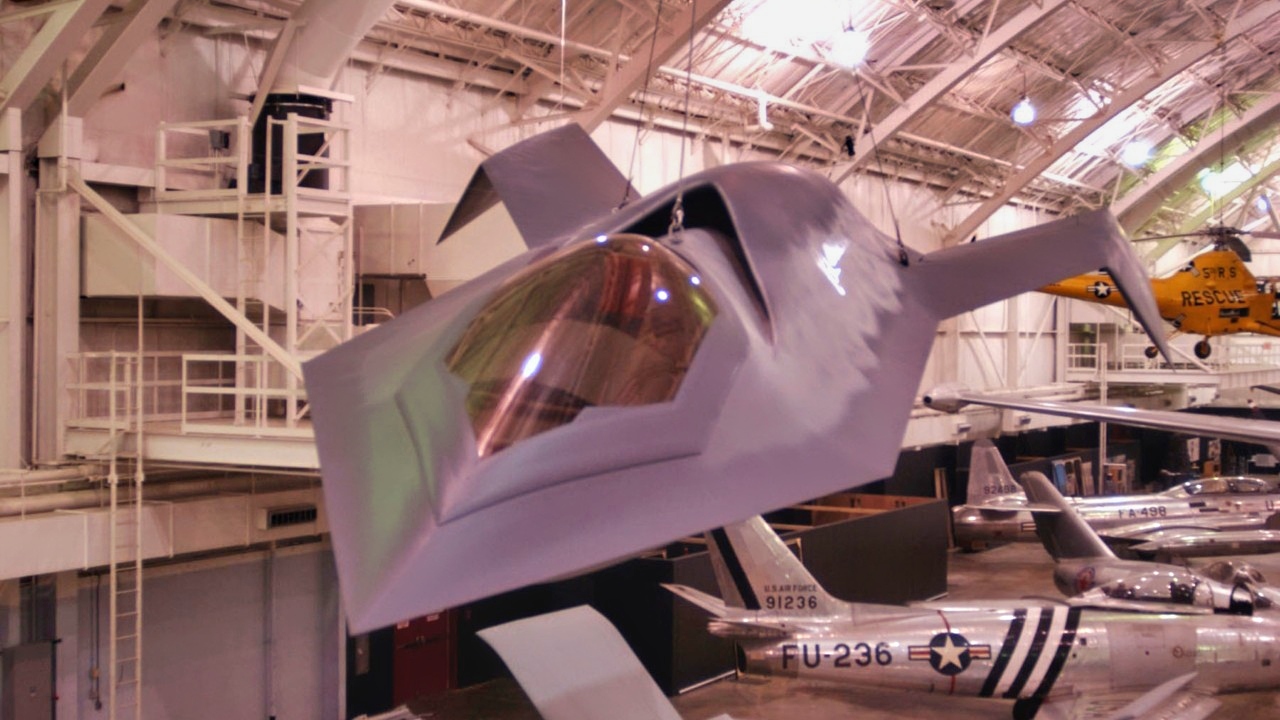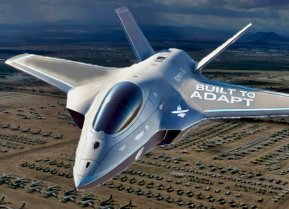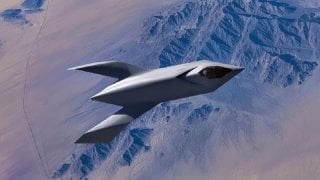The $67 Million Stealth Revolution: Inside the YF-118G Bird of Prey
In the 1990s, McDonnell Douglas’ Phantom Works team developed the Bird of Prey (YF-118G), a groundbreaking stealth aircraft tested at Area 51. Unlike most stealth programs, the Bird of Prey wasn’t intended for operational use but rather served as a technology demonstrator that pioneered new techniques in stealth design and rapid prototyping.
Not only had the Phantom Works team proven that they too could build a stealth aircraft, they had managed to do it all for under $67 million. Adjusted for inflation to today’s currency, that means Wiechman’s Phantom Works successfully designed, prototyped, and flew a clean-sheet stealth platform for around $111 million, or less than the cost of buying a single F-35B today.
“Early investments in technology demonstration projects such as Bird of Prey have positioned Boeing to help shape our industry’s transformation,” Jim Albaugh, president and CEO of Boeing Integrated Defense Systems, said in 2002.
“We changed the rules on how to design and build an aircraft.”
The Bird of Prey Legacy
In 1999, Boeing’s Bird of Prey took flight for the last time, but that wasn’t quite the end of its story. The breakthroughs and lessons learned throughout the program soon found their way into another platform that made its first flight just months before the Bird of Prey was finally unveiled to the public in 2002; the X-45A Unmanned Combat Air Vehicle.

Like the Bird of Prey, the X-45A was a product of Boeing’s Phantom Works, but unlike its Klingon cousin, the X-45A was designed to fly autonomously. According to Boeing, the X-45A’s design was largely derived from the Bird of Prey program, with the UCAV adopting elements of its predecessor’s radar-defeating angular design and unusual dorsal intake. Boeing has also credited some of the design techniques leveraged for the Bird of Prey in their development of the X-32, which ultimately lost out to Lockheed Martin for the Joint Strike Fighter contract just one year after the Bird of Prey program was shuttered.
Today, there are no platforms in service that can draw a direct lineage to Alan Wiechman’s unusual Bird of Prey, and that may be part of the reason it’s not a frequently discussed facet of the American stealth technology race that came at the twilight of the Cold War. But for a short time in the 1990s, the Phantom Works proved that it doesn’t always take a bottomless budget and twenty years’ worth of delays to produce a stealth fighter, and that’s a lesson America has struggled to learn in the decades since the Bird of Prey prowled the skies over Area 51.
You can see the only Bird of Prey ever constructed today at the National Museum of the United States Air Force at Wright-Patterson Air Force Base in the museum’s Modern Flight Gallery, placed right above the museum’s F-22 Raptor.
About the Author: Alex Hollings
Alex Hollings is a writer, dad, and Marine veteran who specializes in foreign policy and defense technology analysis. He holds a master’s degree in Communications from Southern New Hampshire University, as well as a bachelor’s degree in Corporate and Organizational Communications from Framingham State University.
This article was first published by Sandboxx News.
Image: Creative Commons.


